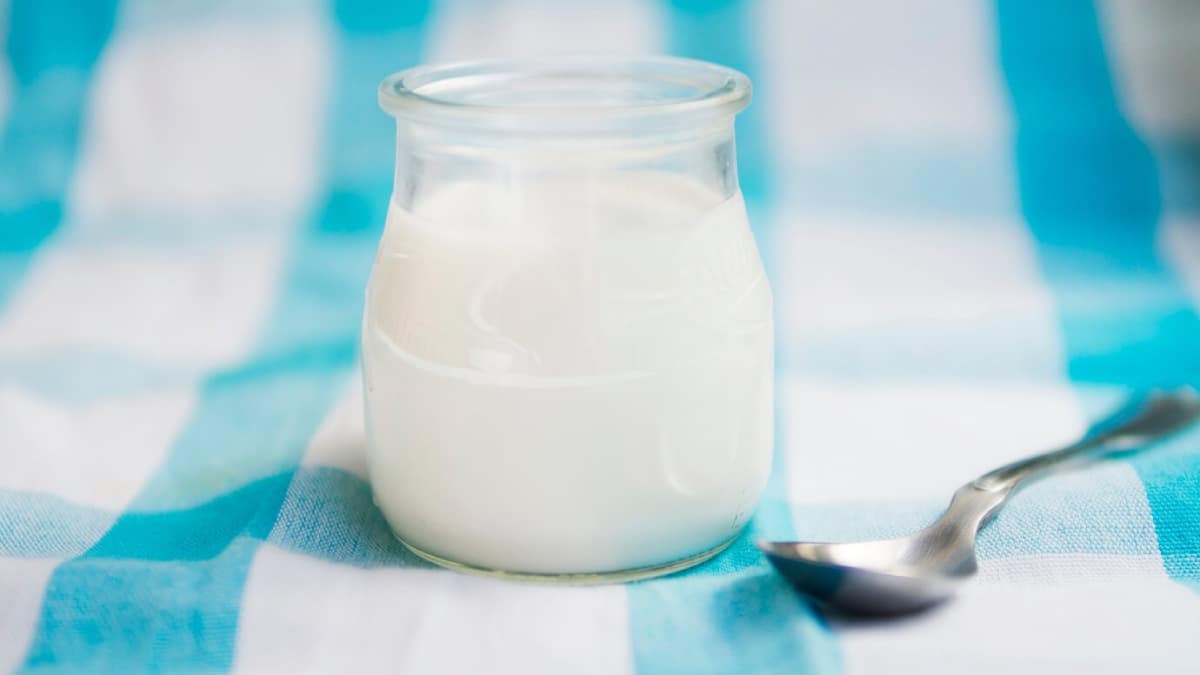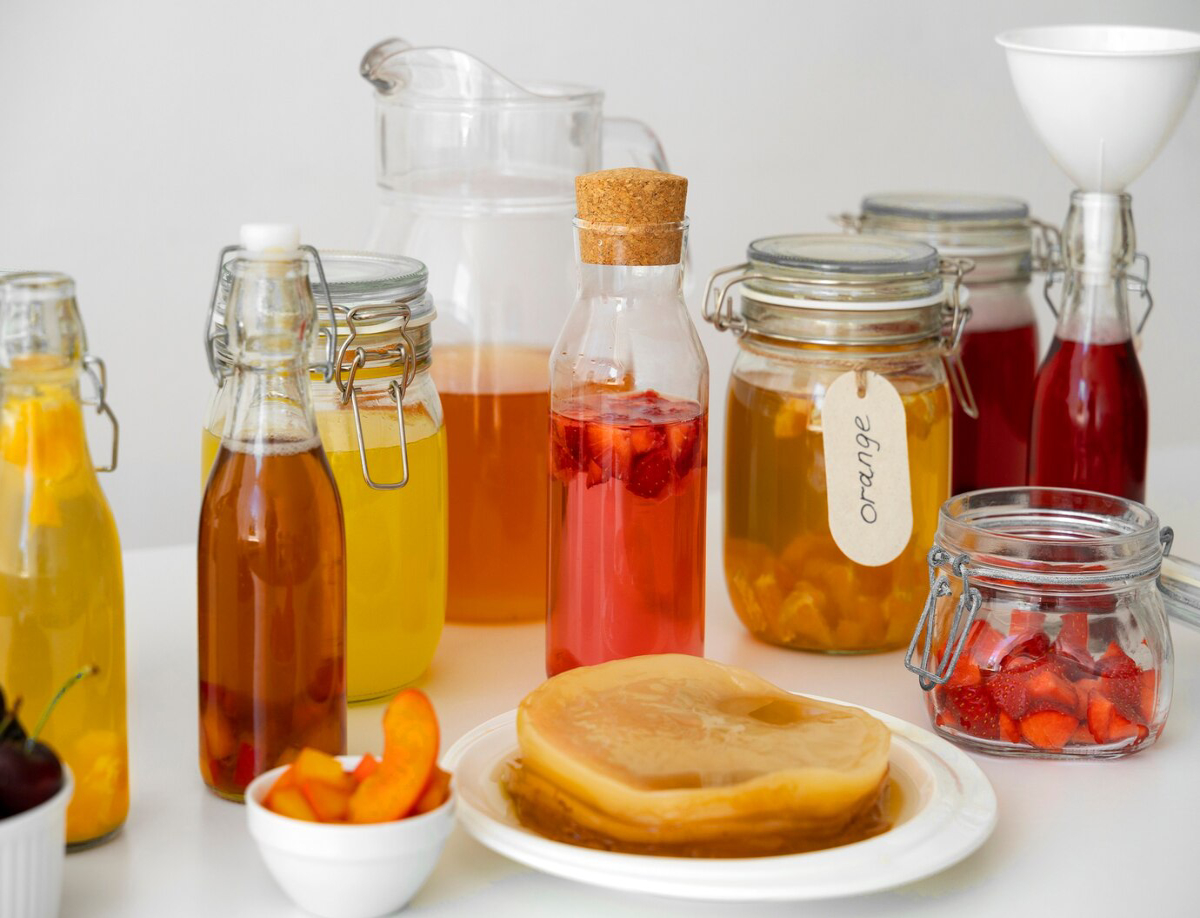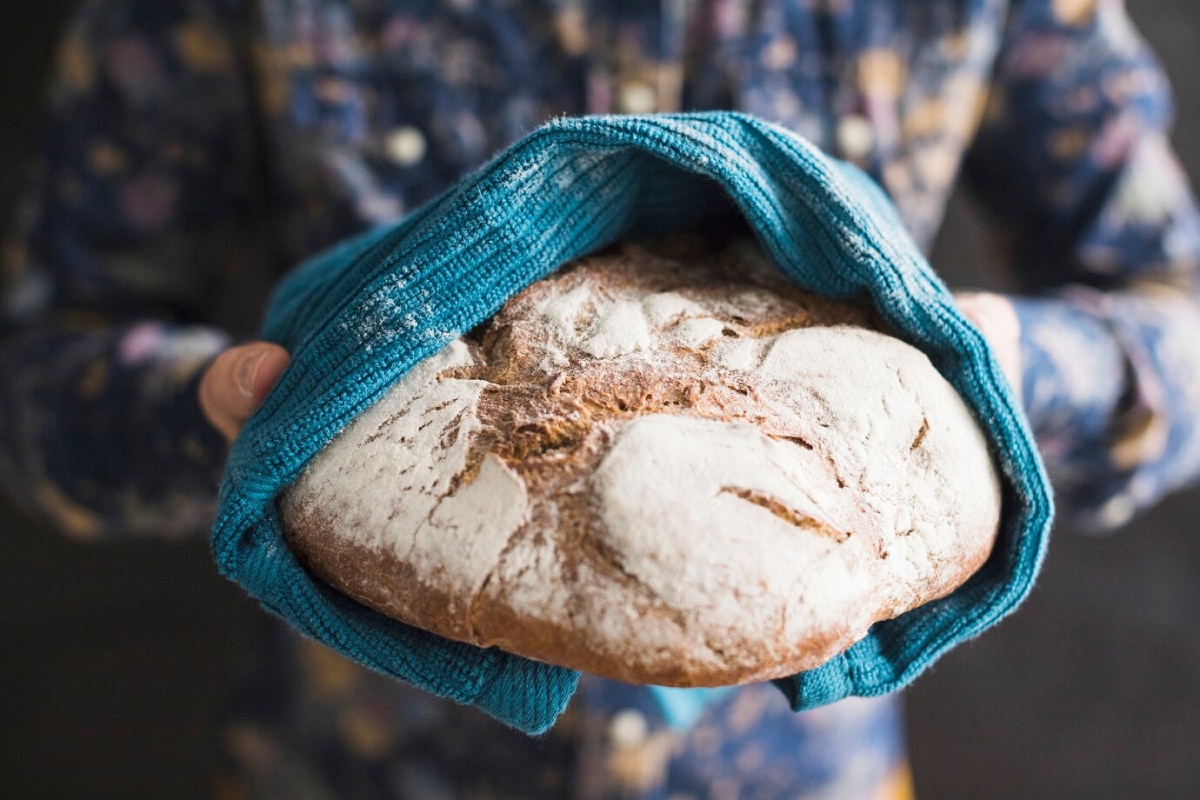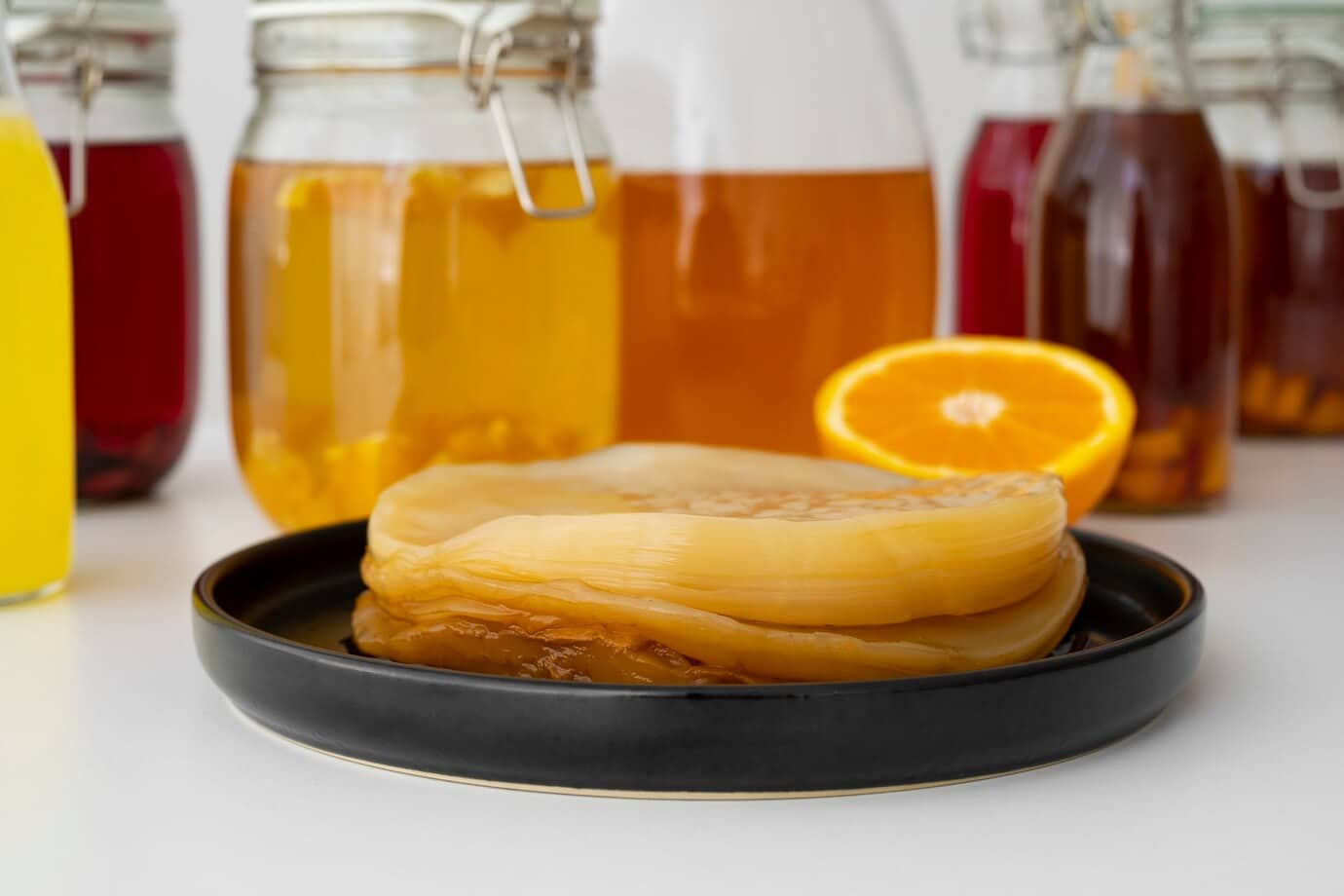
Fermented Foods Proven to Ease Bloating and Improve Digestion
Let’s be honest—bloating is more than just a minor annoyance. It can make your clothes feel tight, drain your energy, and even mess with your confidence. If you’re regularly asking, “Why does my stomach feel like a balloon?”, you’re not alone. And more importantly, there’s a natural way to help ease that discomfort.
Enter fermented foods—a centuries-old digestive secret that’s gaining modern traction. These foods are packed with probiotics and enzymes. They help reduce bloating, improve digestion, and bring comfort from within. In this article, we’ll look at the best fermented foods for bloating. We’ll explain why they work and how to add them to your routine without causing more digestive issues.
If you have IBS, food sensitivities, or feel bloated after meals, you’ll find tasty options that really help your gut health.
What Causes Bloating in the First Place?
Before we dive into solutions, let’s understand the problem.
Common Causes of Bloating:
- Swallowed air from fast eating or fizzy drinks
- Gas build-up from poorly digested carbohydrates
- Imbalanced gut bacteria (dysbiosis)
- Food intolerances (e.g., dairy, gluten, FODMAPs)
- Constipation
- Stress and anxiety (yes, really!)
How Fermented Foods Can Help
Fermented foods are a natural source of probiotics, live microorganisms that help balance your gut flora. When your gut microbes are healthy and diverse, digestion becomes more efficient and gas build-up decreases. Many ferments also contain digestive enzymes, which break down food more effectively, reducing the chance of bloating in the first place.
How Fermented Foods Relieve Bloating
1. Rebalancing Gut Bacteria
Fermentation introduces beneficial bacteria like Lactobacillus and Bifidobacterium, which crowd out gas-producing bad bacteria.
2. Enhancing Nutrient Absorption
When your gut is healthy, it absorbs nutrients more efficiently, reducing undigested food particles that can ferment and cause gas.
3. Producing Digestive Enzymes
Many fermented foods come packed with natural enzymes that support the breakdown of proteins, fats, and carbs.
4. Lowering Gut Inflammation
Fermented foods help heal the intestinal lining, especially when combined with prebiotic-rich fibres, making them a long-term solution for natural digestion relief.
For more on the science behind probiotics, check out The Science Behind Fermented Probiotics.
Best Fermented Foods for Natural Digestion Relief
1. Sauerkraut (Fermented Cabbage)
Why it works: Sauerkraut is rich in lactic acid bacteria, which soothe inflammation and aid in breaking down fibre-rich meals.
How to eat it:
- Add to toast or avocado on sourdough
- Toss into a salad for extra crunch
- Use as a side with hearty dishes
Pro tip: Look for unpasteurised sauerkraut in the refrigerated section—heat kills the good bacteria.
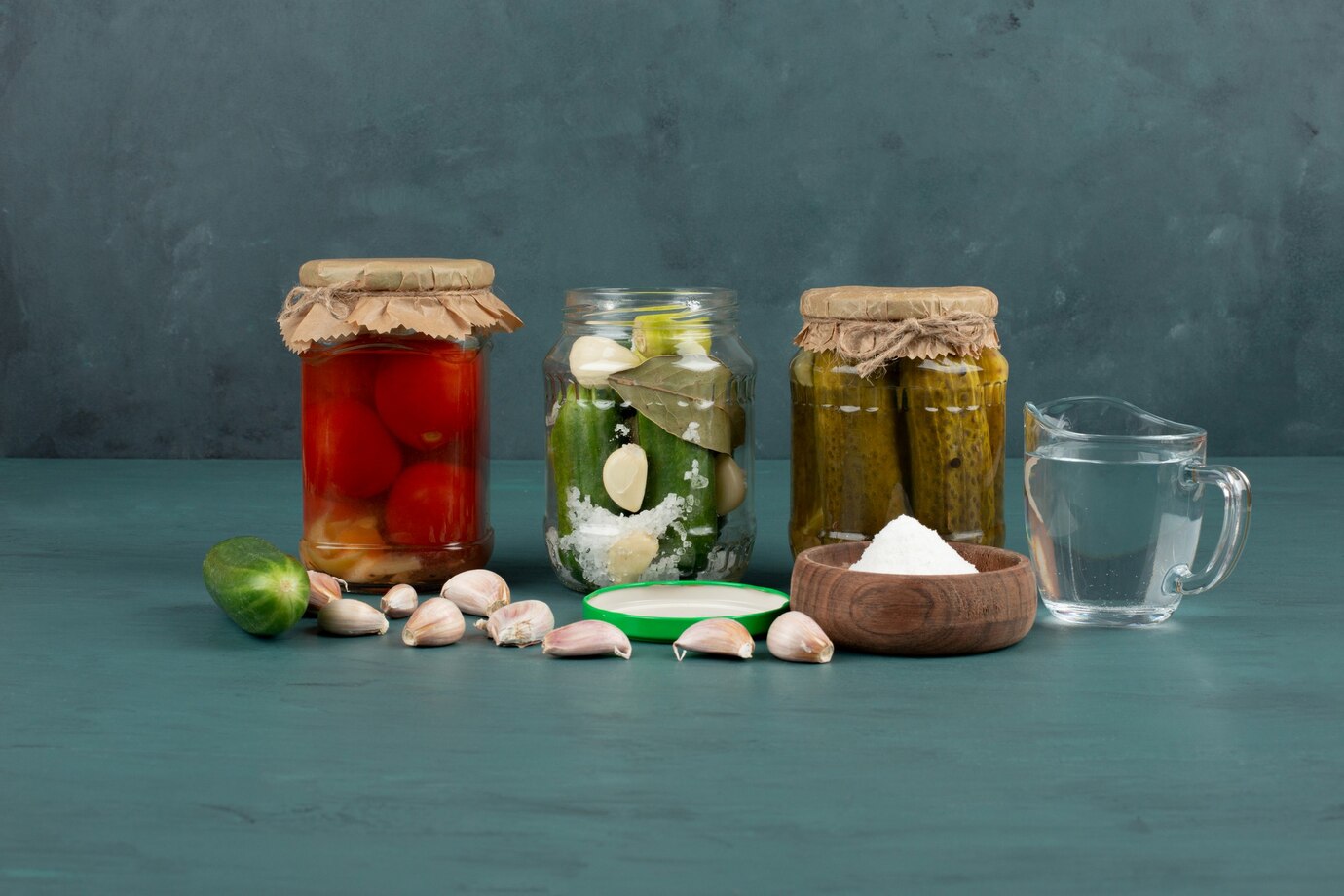
2. Kimchi (Spicy Fermented Vegetables)
Why it works: Kimchi’s combination of cabbage, garlic, and chilli boosts digestion while offering anti-bloating probiotics and prebiotics.
How to enjoy it:
- Mix with rice and egg for a quick lunch
- Use in wraps or tacos
- Add a forkful to grilled meats
3. Kefir (Fermented Milk or Water)
Why it works: Kefir contains a mix of over 30 strains of beneficial bacteria and yeast. It also has digestive enzymes that help break down lactose and other food particles.
Best uses:
- Drink plain or flavoured
- Blend into smoothies
- Pour over muesli or porridge
Sensitive to dairy? Try water kefir—a non-dairy version made from sugar water and kefir grains.
4. Yoghurt with Live Cultures
Why it works: Natural yoghurt helps calm the stomach and contains active cultures that restore balance.
Eat it with:
- Chia and flaxseed for added fibre
- Fresh berries for antioxidants
- A drizzle of honey for flavour
5. Tempeh (Fermented Soybeans)
Why it works: Tempeh is a protein-rich, fibre-filled option that introduces beneficial microbes and aids digestion.
Ways to serve:
- Pan-fried in stir-fries
- Cubed and added to Buddha bowls
- Crumbled into chilli or pasta sauces
6. Miso (Fermented Soy Paste)
Why it works: Miso is soothing, gut-supportive, and packed with enzymes that help ease digestion.
Use it in:
- Broths and soups
- Dressings for salads
- Marinades for roasted veg or tofu
Want to make your own gut-friendly condiments? Explore DIY Mustard with Natural Fermentation.
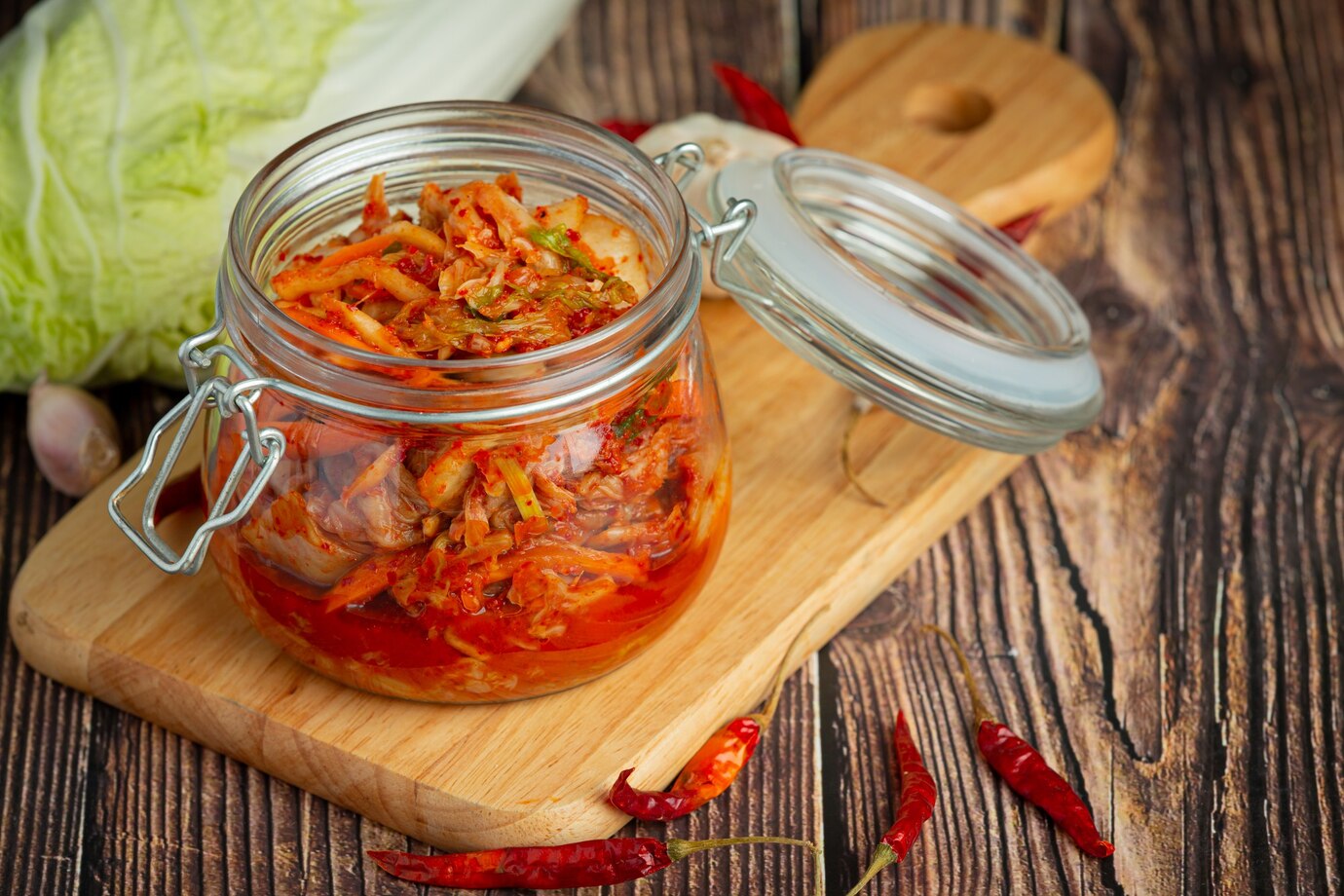
7. Pickles (Naturally Fermented)
Why it works: Brine-based pickles (not vinegar-soaked ones) encourage better digestion and balance the gut.
Pair with:
- Sandwiches and wraps
- Hummus and crackers
- Cheese boards
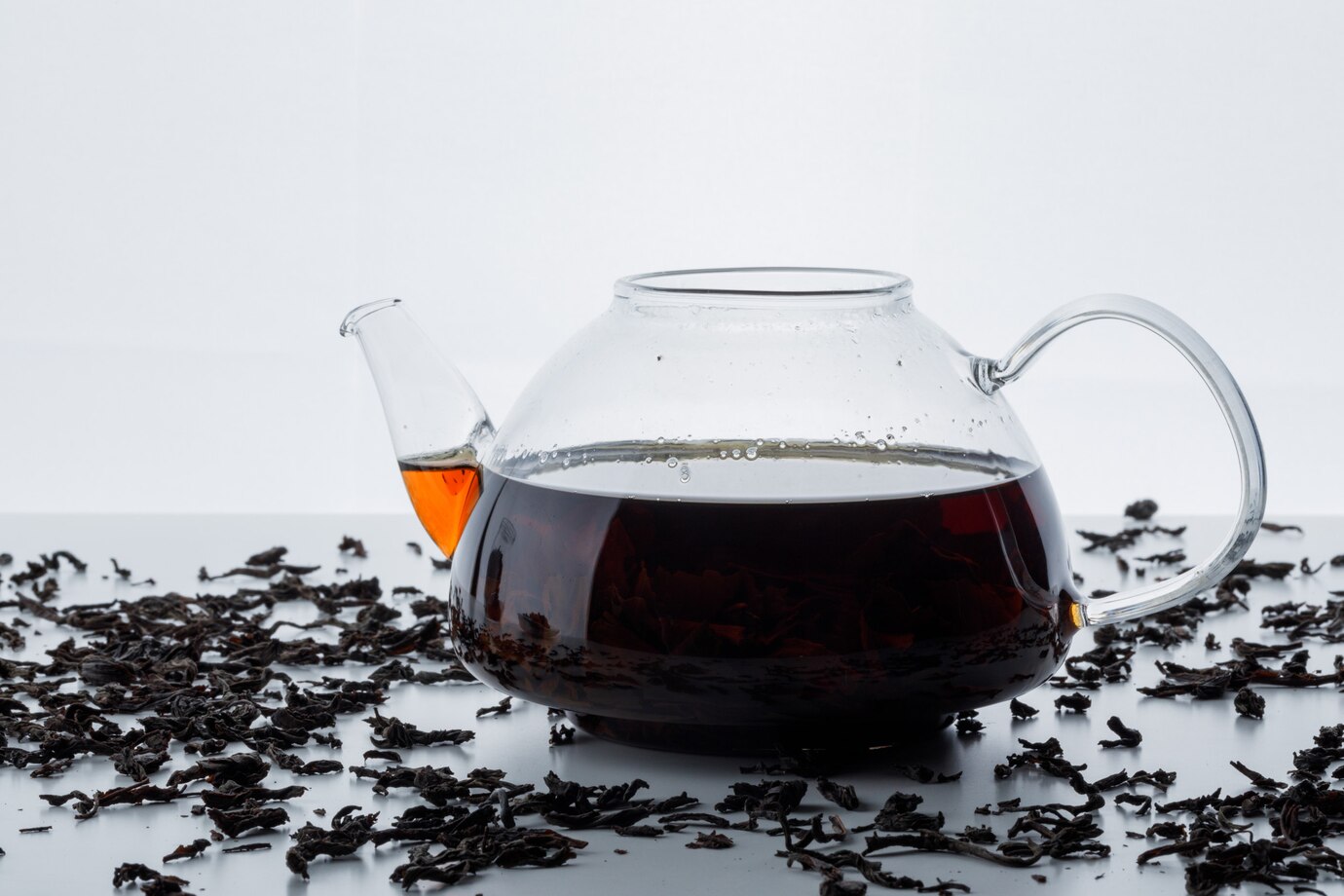
8. Kombucha (Fermented Tea)
Why it works: Kombucha is lightly carbonated and full of organic acids and probiotics that aid in fermented gut support.
Sip it:
- Cold from the fridge
- As a midday digestive boost
- Before meals to prime your stomach
Anecdotal Experiences: Real-Life Gut Relief
“No More Post-Meal Belly Bulge” “I used to get painfully bloated after lunch, no matter what I ate. Adding a spoonful of sauerkraut with meals has changed everything.” — Jess, 34, Edinburgh
“Kefir Became My Morning Reset” “I drink kefir with breakfast every day now. It keeps my digestion regular and I feel lighter throughout the day.” — Omar, 41, Leeds
“Kimchi Got Me Off Antacids” “A small amount of kimchi in my lunch box helped calm my acid reflux and evening bloating. I’m off my meds!” — Sophie, 29, Bristol
Tips for Introducing Fermented Foods Safely
Start Small
Begin with 1–2 tablespoons per day and gradually increase. Too much too fast can cause temporary bloating as your microbiome adjusts.
Read the Labels
Look for:
- “Live cultures” or “unpasteurised”
- No added sugars or preservatives
- Refrigerated section for freshest options
Combine with Fibre
Fibre feeds your good bacteria. Add whole grains, legumes, and prebiotic veggies like leeks and onions.
Avoid Heating
Probiotics die at high temperatures. Add fermented foods after cooking, not during.
Say Goodbye to Bloating the Natural Way
There’s no magic pill for digestive comfort, but there is a natural solution. Fermented foods are one of the most accessible, time-tested ways to support your gut and banish that post-meal puffiness for good.
By adding these anti-bloating probiotics to your daily diet, you give your digestive system the tools it needs to thrive—gently, naturally, and deliciously. You don’t need to overhaul your life. Just a spoonful of sauerkraut or a sip of kefir can start the process.
So why not begin today? Share your favourite ferment in the comments, sign up for weekly gut-friendly recipes, or try a new probiotic-packed food this week. Your belly (and your mood) will thank you.
